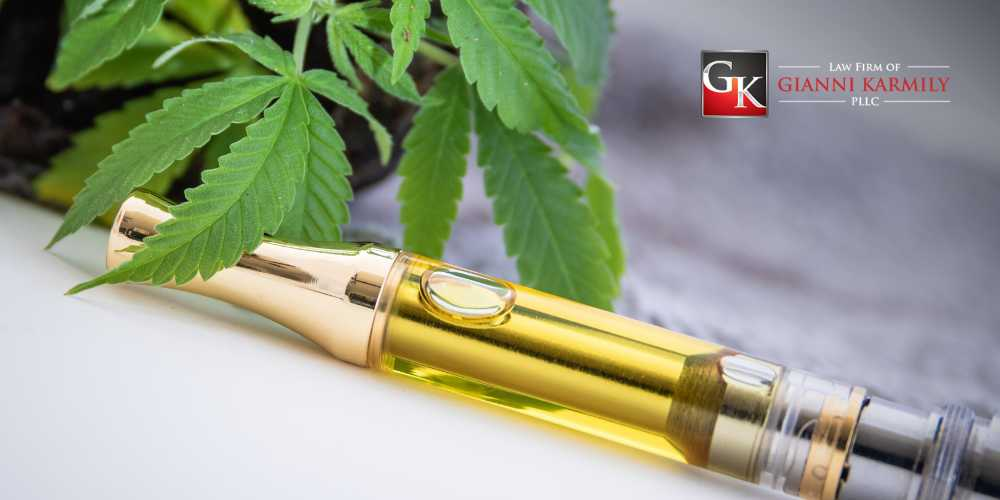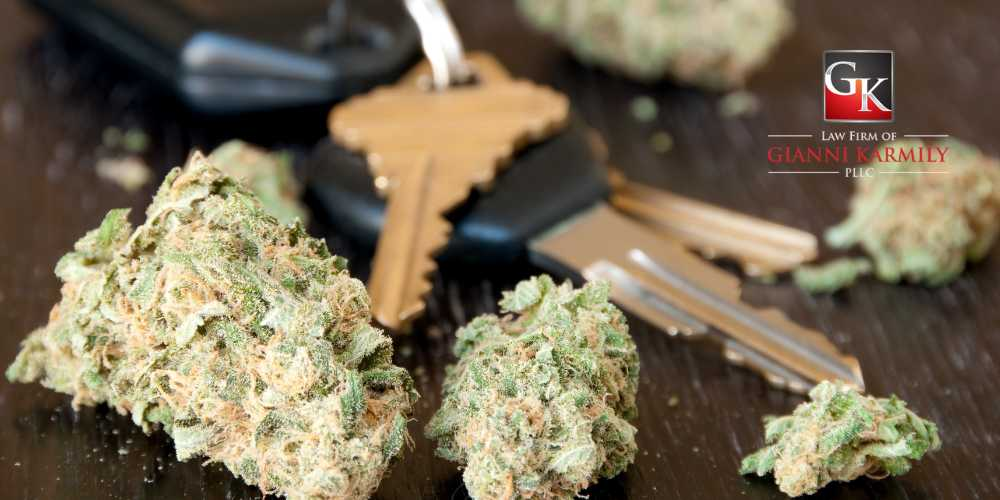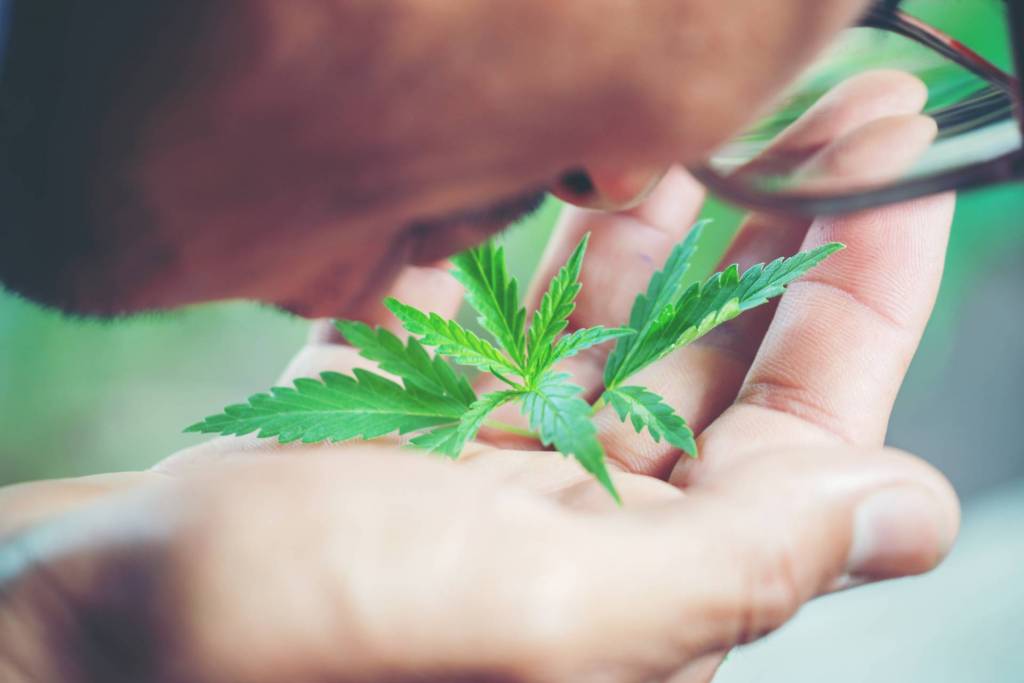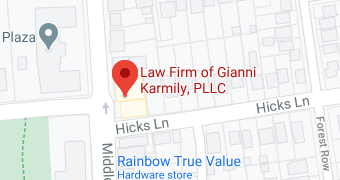Many individuals living in and visiting New York State have just one question on their minds: is marijuana legal in New York? While, yes, marijuana and cannabis products are legal in the state of New York, there are certain limits to when and where they can be used, as well as the amount of certain cannabis products a person can possess at a given time.
If you have found yourself accused of a marijuana-related crime in Nassau County, Long Island drug crime lawyer Gianni Karmily is here to help. With his many years of experience and in-depth understanding of New York cannabis laws, he’ll have the skills and knowledge needed to build a solid defense on your behalf.
We have two Nassau County, Long Island locations, so call our office closest to you and schedule a case evaluation with Attorney Gianni Karmily regarding your case. You can call our Great Neck location at (516) 630-3405 or our Hempstead office at (516) 614-4228 today.
What is Cannabis?
Let’s get technical. Cannabis, often referred to as marijuana or weed, is a plant that has been used for various purposes for thousands of years. It is renowned for its psychoactive properties, mostly due to the presence of a compound called delta-9-tetrahydrocannabinol (THC). THC is responsible for the “high” or altered state of consciousness that individuals experience when they consume cannabis.
Cannabis is a versatile plant with different strains and varieties, each containing varying levels of THC and another prominent compound called cannabidiol (CBD). In addition to different strains, cannabis comes in many different forms, including dried cannabis flower, cannabis concentrate, and synthetic cannabis.
Risks and Benefits of Marijuana
Like any drug, there are a number of risks associated with using cannabis products. However, there are also a number of benefits, some of which extend outside of the realm of recreational fun and into the world of health and healing. Below are some of the risks as well as the benefits associated with marijuana.
Risks
While marijuana has a number of therapeutic benefits, it is essential to be aware of the risks associated with the use of the drug.
- Psychological Effects: One of the primary concerns with marijuana use is its potential to cause adverse psychological effects, like anxiety, paranoia, or even hallucinations.
- Impaired Cognitive Function: Marijuana can impair cognitive function, particularly in memory, attention, and problem-solving. This can impact academic and professional performance and impede their ability to complete certain tasks and exercise caution.
- Addiction: Although the risk of physical dependence on marijuana is much lower than with other substances, some individuals may develop a psychological dependence on marijuana.
- Lung Health: Smoking marijuana can have negative effects on lung health, similar to that of tobacco smoking. When smoked frequently, it can cause respiratory issues like chronic bronchitis.
Benefits
On the other side of the coin, marijuana also offers several potential benefits that have contributed to its growing acceptance:
- Pain Management: Marijuana has shown promise in alleviating chronic pain, making it an alternative for individuals suffering from conditions such as arthritis, neuropathy, and cancer-related pain.
- Anxiety and Stress Reduction: Some individuals find relief from anxiety and stress through the use of marijuana. Specific strains with higher CBD content and lower THC are often preferred for this purpose.
- Nausea and Appetite Stimulation: Medical cannabis has been prescribed to cancer patients undergoing chemotherapy to combat nausea and stimulate appetite, helping them maintain nutrition during treatment.
- Epilepsy Treatment: CBD-rich cannabis products have been effective in reducing the frequency and severity of seizures in some forms of epilepsy, leading to FDA approval of Epidiolex, a CBD-based medication.
- Neurological Disorders: There is evidence to suggest that marijuana could be beneficial for certain neurological disorders, such as multiple sclerosis and Parkinson’s disease, by reducing symptoms like muscle spasticity and tremors.
Is Marijuana Legal in New York?
Yes, as of March 2021, marijuana is legal for adult recreational use in New York State. Under New York’s cannabis law, adults 21 years old and older are legally allowed to possess up to three ounces of cannabis flower and/or up to 24 grams of concentrated cannabis. Public consumption of cannabis follows the same rules and regulations as public consumption of tobacco, as defined in New York Pub Health Sec.1399.
Medical Cannabis in New York
In addition to recreational marijuana products, residents in New York can gain access to medical marijuana products through the state’s medical cannabis program. This program allows individuals with qualifying medical conditions to access cannabis for therapeutic purposes.
To participate, patients must receive a recommendation from a registered healthcare provider and obtain a Medical Marijuana Identification Card. From there, they can possess and use medical cannabis for things like chronic pain, epilepsy, inflammatory conditions, and more.
It’s important to note that the Medical Marijuana Program operates separately from the recreational market, with distinct regulations that govern both patient access and product availability.
What is the Marijuana Regulation and Taxation Act?
On March 31, 2021, the New York State Legislature passed the Marijuana Regulation and Taxation Act (MRTA), which legalized the use of recreational cannabis in the state of New York. It also provided rules and regulations on the cultivation, distribution, and possession of cannabis for both individuals and sellers.
New York lawmakers voted to enact the MRTA in order to create a legal, safe, and controlled market for marijuana as well as address the social equity concerns surrounding marijuana. They did this by expunging certain drug-related convictions from the cannabis prohibition era and by fostering opportunities for marginalized communities to participate in the emerging cannabis industry.
Cannabis Control Board and the Office of Cannabis Management in New York
To oversee the implementation and regulation of the MRTA, New York State established the Cannabis Control Board and the Office of Cannabis Management (OCM). The Cannabis Control Board is responsible for creating and enforcing regulations related to the cultivation, distribution, and sale of cannabis products, ensuring compliance with state laws and guidelines.
The Office of Cannabis Management (OCM), on the other hand, is tasked with the day-to-day administration of the cannabis program, including licensing of cannabis dispensaries, setting product standards, and overseeing social equity initiatives. Together, these organizations work to create a well-regulated and equitable cannabis market, prioritizing public safety, responsible use, and the economic empowerment of historically marginalized communities.
Determining Which Pot Shops Are Legal in New York
With the legalization of recreational marijuana in New York, residents and visitors may be eager to explore legal cannabis dispensaries. However, it’s important to ensure that you are patronizing legitimate and licensed establishments. Legal cannabis businesses in the state will be regulated and licensed by the OCM.
While it may seem tempting to make purchases through your closest cannabis dispensary, make sure that the dispensary is, in fact, licensed to sell legal cannabis products. You can find legal and licensed dispensaries that sell adult-use cannabis products on the OCM’s website. Unlicensed or illicit shops can pose risks to consumers and may operate outside the bounds of the law.
Ensuring that you are purchasing from a licensed and regulated pot shop not only guarantees the quality and safety of the products but also supports the responsible growth of the cannabis industry in New York.
Can You Get a DWAI For Driving High in New York?
Yes, you can get a DWAI for driving while under the influence of legal weed. According to New York Vehicle and Traffic Law § 1227, it’s illegal for anyone to consume marijuana while driving or have open cannabis products in a vehicle, passengers included.
If you are facing any criminal or civil penalties as a result of driving while high, you’ll need a Nassau County, Long Island criminal defense attorney like Gianni Karmily on your side. He will advocate for you both inside and out of the courtroom and will work tirelessly to defend your rights.
Penalties for Driving High in New York
Just like with driving under the influence of alcohol, it’s illegal to drive under the influence of cannabis, regardless of whether the drug is being used recreationally or medicinally. Below are the legal penalties related to drugged driving in New York.
Driving While Ability Impaired By A Drug (DWAI-Drug)
Below are the penalties for driving while impaired by a single drug other than alcohol.
- First Offense: A fine of $500 to $1,000, up to 1 year in prison, and a license revocation of at least 6 months
- Second Offense in 10 years: A fine of $1,000 to $5,000, up to 4 years in prison, and a license revocation of at least 1 year
- Third Offense in 10 years: A fine of $2,000 to $10,000, up to 7 years in prison, and a license revocation of at least 1 year
Someone’s first DWAI-Drug offense will be charged as an unclassified misdemeanor. However, their second offense within 10 years will be a class-E felony, and their third offense within 10 years will be a class-D felony.
Driving While Ability Impaired By Alcohol and Drugs (DWAI-Combination)
Below are the penalties for driving while impaired by a combination of two or more drugs or a combination of drugs and alcohol.
- First Offense: A fine of $500 to $1,000, up to 1 year in prison, and a license revocation of at least 6 months
- Second Offense in 10 years: A fine of $1,000 to $5,000, up to 4 years in prison, and a license revocation of at least 1 year
- Third Offense in 10 years: A fine of $2,000 to $10,000, up to 7 years in prison, and a license revocation of at least 1 year
Just like with DWAI- Drug charges, someone’s first DWAI-Combination offense will be charged as an unclassified misdemeanor. Their second offense within 10 years will be a class-E felony, and their third offense within 10 years will be a class-D felony.
If you’re facing any of the aforementioned DWAI charges, it’s crucial to arm yourself with strong legal representation from a Nassau County, Long Island DWI attorney at the Law Firm of Gianni Karmily.
Driving Under the Influence Out of State With Previous DWAI-Drugs
Just like in New York, it’s illegal to drive under the influence of recreational or medical marijuana in other states. If you are caught driving under the influence while in another state, and you have prior DWAI offenses on your record, you could have your New York driver’s license revoked for at least 90 days.
If you were under the age of 21 at the time of the incident, you could have your license revoked for at least one year or until you turn 21, whichever is longer.
Call Nassau County, Long Island Drug Crime Attorneys at the Law Firm of Gianni Karmily
Many people would argue that the legalization of marijuana in New York has made a positive impact on the state as a whole. However, it’s still possible to be charged with a crime related to marijuana possession, use, or distribution. If you have been accused of unlawful possession or distribution, or you have been accused of driving while ability impaired, you need a strong legal advocate on your side.
Being accused of any crime can be a stressful experience. At the Law Firm of Gianni Karmily, we provide our clients with both aggressive representation and compassionate legal counsel to the residents of Nassau County, Long Island. Attorney Gianni Karmily is here to answer any of your questions and provide you with a plan of action regarding your criminal case.
We offer our clients a initial case evaluation, so schedule yours today. Call our Great Neck location at (516) 630-3405 or call our Hempstead office at (516) 614-4228. You can also contact us online, and a member of our team will reach out to you regarding your case.








